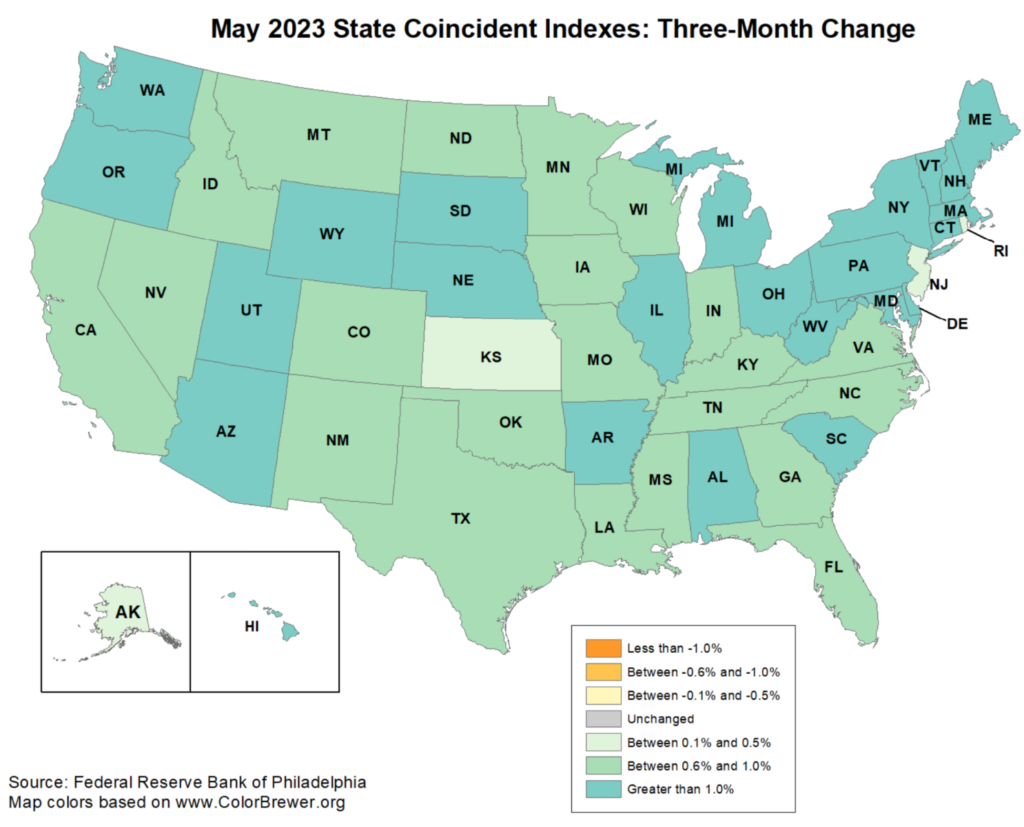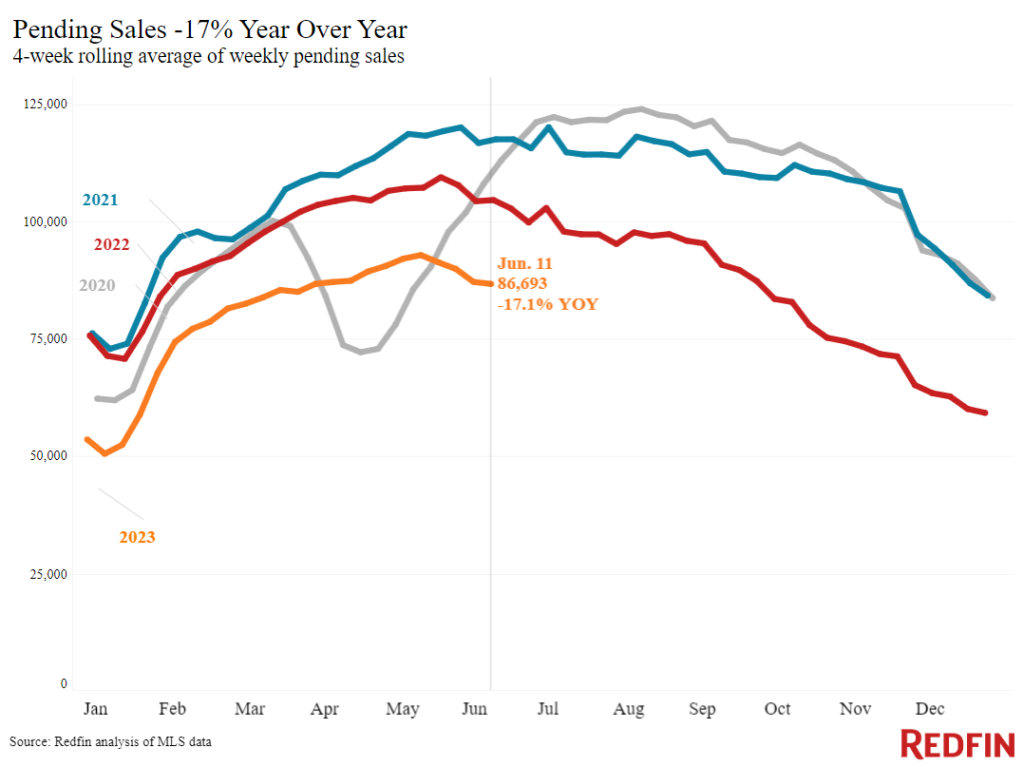From CNBC:
Home prices rose for third straight month in April, S&P Case-Shiller index says
Home prices peaked last June, falling sharply through the beginning of this year. Now, they’re recovering steadily.
Home prices in April were still down 0.2% compared with April 2022, according to the S&P CoreLogic Case-Shiller national home price index. They were, however, 0.5% higher month to month, after seasonal adjustments. Prices are now just 2.4% below their June 2022 peak.
Miami, Chicago, and Atlanta were still seeing big gains in April, with prices up 5.2%, 4.1% and 3.5% year over year, respectively. When compared with a year ago, the price declines were larger in April than in March in 17 of the top 20 index cities. Boston, San Francisco and Cleveland showed slight increases.
A major jump in mortgage rates last summer caused a decline in prices. But, rates are still high, and homebuyers appear to be adjusting to the new normal. Demand is strengthening.
“The ongoing recovery in home prices is broadly based,” Craig Lazzara, managing director at S&P DJI, said in a release.
“If I were trying to make a case that the decline in home prices that began in June 2022 had definitively ended in January 2023, April’s data would bolster my argument,” he added. “Whether we see further support for that view in coming months will depend on the how well the market navigates the challenges posed by current mortgage rates and the continuing possibility of economic weakness.”
Before seasonal adjustments, prices rose in all 20 cities in April, as they had also done in March. Seasonally adjusted data showed prices rising in 19 cities in April versus 14 in March.


